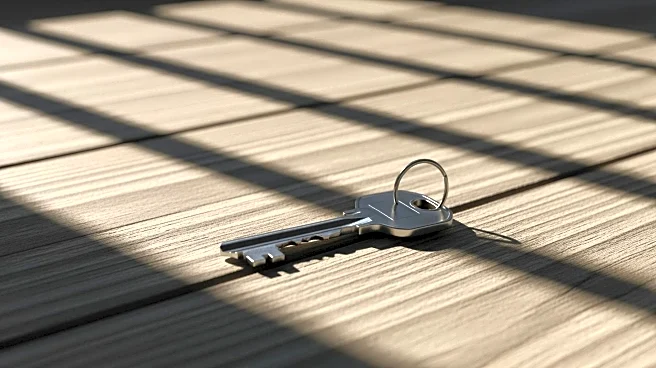What's Happening?
Mikola Statkevich, a prominent Belarusian opposition leader and former presidential candidate, has reportedly been returned to a penal colony after refusing to leave Belarus for Lithuania. Statkevich was
among 52 prisoners released on September 11, 2025, as part of a broader engagement between Belarus and the United States, which included easing certain sanctions on the Belarusian state airline, Belavia. Despite the release, Statkevich declined to cross into Lithuania, reportedly forcing open a bus door and stepping into the neutral zone between Belarus and Lithuania. He has since been located at the Hlybokaye penal colony, where he had previously been held. Statkevich, who ran against President Alexander Lukashenko in the 2010 election, has been a significant figure in Belarusian politics and was sentenced to 14 years in prison in 2021 on charges of organizing mass unrest.
Why It's Important?
The return of Mikola Statkevich to a penal colony highlights ongoing tensions between Belarus and Western nations over human rights and political freedoms. The release of prisoners, including Statkevich, was seen as a gesture towards improving relations with the West, particularly the United States. However, Statkevich's refusal to leave Belarus and subsequent return to custody underscores the complex dynamics at play. The situation raises questions about the conditions attached to the release of political prisoners and the broader implications for Belarus's domestic and international policies. The U.S. and European Union have expressed concerns over the treatment of political prisoners in Belarus, and Statkevich's case may influence future diplomatic engagements and sanctions policies.
What's Next?
The international community, including the United States and European Union, is likely to monitor the situation closely, with potential implications for future diplomatic relations and sanctions. The U.S. has indicated a willingness to consider reopening its embassy in Minsk, closed since 2008, as part of broader diplomatic efforts. However, the continued detention of political prisoners like Statkevich may complicate these efforts. Human rights organizations and opposition figures, such as Sviatlana Tsikhanouskaya, are expected to continue advocating for the release of political prisoners and the right for them to remain in Belarus if they choose.
Beyond the Headlines
The case of Mikola Statkevich highlights the ethical and legal challenges surrounding the release of political prisoners under conditions that may require them to leave their home country. This situation raises broader questions about the rights of political dissidents and the responsibilities of states to uphold human rights standards. The ongoing detention of political figures in Belarus also reflects deeper cultural and political divides within the country, as well as the challenges faced by opposition movements in authoritarian regimes.








